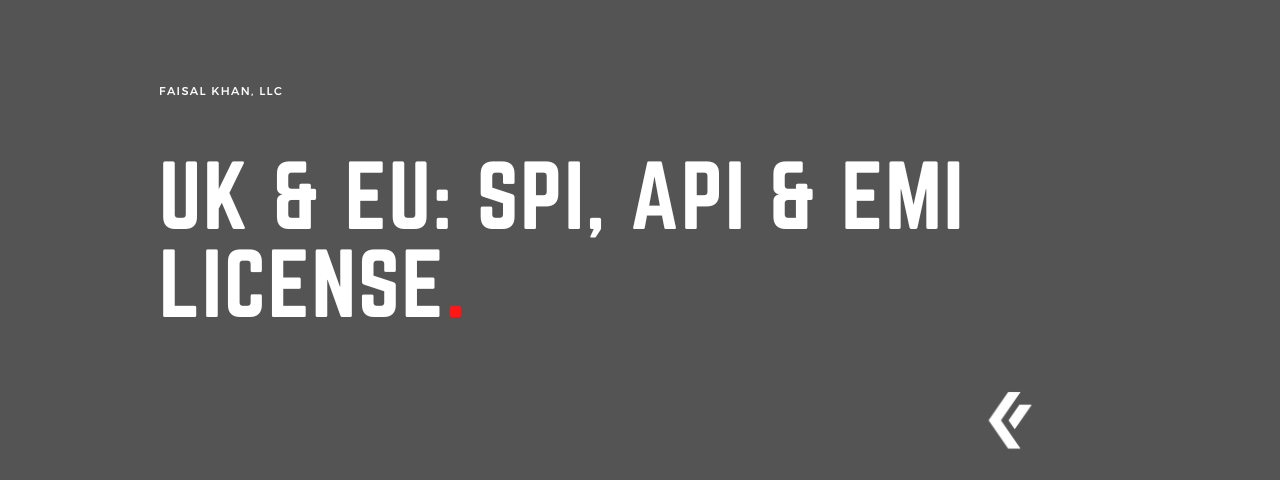Public Advisory for Money Transfer Licensing in the UK
The Financial Conduct Authority (FCA) in the UK has implemented a stringent and restrictive approach to licensing, resulting in significant delays and a sharp decrease in approval rates. Entrepreneurs seeking licenses must carefully consider the challenges and requirements before proceeding. Read more here.
UK and Europe have two different licensing regimes, both issued under the Payment Services Directive.
The two licensing options are:
- Electronic Money Institution (or commonly referred to as E-Money Institution), and
- Payment Services Institution (or commonly referred to as PI) or Payment Institution license for short
The original Payment Services Directive was issued in 2007 and the new one called Payment Service Directive (Revised), commonly referred to as Payment Service Directive 2 or PSD2, issued in 2015.
See also paper by Financial Conduct Authority (Payment Systems Regulator) – Consultation Paper – A new regulatory framework for payment systems in the UK (November 2014) – PDF.
In the United Kingdom, the financial regulator was the Financial Services Authority (or FSA). The FSA was later disbanded and split up into two organizations:
- FCA or Financial Conduct Authority, and
- PRA or Prudential Regulation Authority (under the Bank of England)
The role of the two entities was set as follows:
Financial Conduct Authority
“The FCA regulate the financial services industry in the UK. Their aim is to protect consumers, ensure the industry remains stable and promote healthy competition between financial services providers.”
Prudential Regulation Authority
“The PRA is a part of the Bank of England and responsible for the prudential regulation and supervision of banks, building societies, credit unions, insurers and major investment firms. It sets standards and supervises financial institutions at the level of the individual firm.”
The FCA is the authority that actually grants the UK Payment Institution License which is what what most money transmitters require, unless of course you are issuing e-money in which case the UK Payment Institution License is not the correct one, but the UK E-Money License is the one to get. For example if you are a money transfer company that wants to specialize in the transferring of money (remittances) from the UK to other parts of the world, then UK Payment Institution License is what you would most likely apply for. Companies starting out in this space might apply for the Small UK Payment Institution License (or SPI).
Electronic Money Institution
[Home page at FCA for Electronic Money Institutions]
Electronic money institution license or E-Money license is issued for the following usage:
“If you want to issue electronic money (e-money) you must register with or become authorised by us as an electronic money institution (EMI).”
Source: FCA – Emoney License
As a company, if you are planning to offer stored value, i.e. storing or issuance of electronic money in a digital wallet, then you would need an e-money license.
Payment Services Institution
[Home page at FCA for Payment Services Institutions]
“Firms must be authorised by or registered with us to provide payment services like electronic credit card transactions and money transfer operations, under the Payment Services Regulations.”
Source: FCA – PI License
Conversely, as a company if you are planning to do everything else but e-money issuance, you don’t need an e-money license, but rather a PI license. Money Transmitters (MTs), Money Services Businesses (MSBs) fall in this category, so do Remittance & Money Transfer Operators (MTOs).
For both the entities above, there are two types of licenses issued:
- Registered (or Small)
- Authorized
Either license you opt for, all companies must also register with HM Revenue & Customs.
There is an exemption status (from both authorized or registered) if your company is one of the following:
- Credit Institution
- Bank
- Building Society
- Credit Union, or
- Municipal Bank
What is the difference between Registered and Authorized?
The difference between registered (also known as the Small Payment Institution License) and authorized hinges on four variables:
- Application Fees
- Passporting Rights
- Paid Up Capital
- Revenue Size
Here is an example comparing the E-Money License between Registered and Authorized. (Courtesy Neopay).

Also read “What is a Payment Institution?”
What is Passporting and why is it important?
With an Registered License, you are only allowed to operate within the United Kingdom. You may not solicit clients from the rest of EU member states. With Passporting rights you can solicit clients from not only UK, but from all the EU Member states, also known as European Economic Area (EEA).
The restriction on Passporting license is that you may not establish an office in other EU states from where you are soliciting clients from. If that were to be the case, then you would have to apply for a license in that specific geographic territory.
However it is important to note, one has to apply for passporting right to each EEA country and be approved.
FCA has a great one-minute guide for Understanding Passporting.
How can we help with Licensing?
We can help you apply for a UK Payment Institution License (PI) or E-Money license (which by far is the easiest one to get amongst the EEA members).
In the interim period, we can have you do a correspondent agreement (tie-up) with those who already posses a license with passporting rights (provided the line of business is the same and there is mutual benefits to both parties).
—
This page was last updated on June 5, 2023.
–

